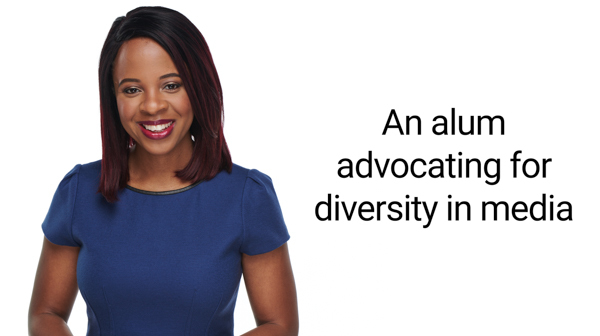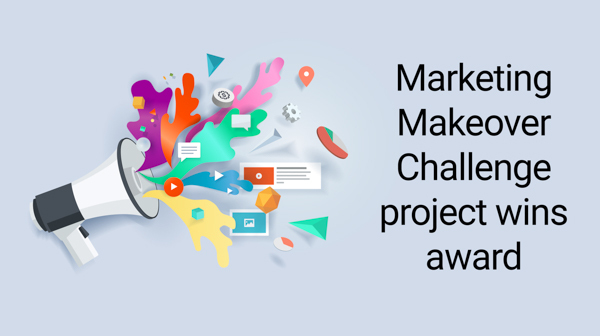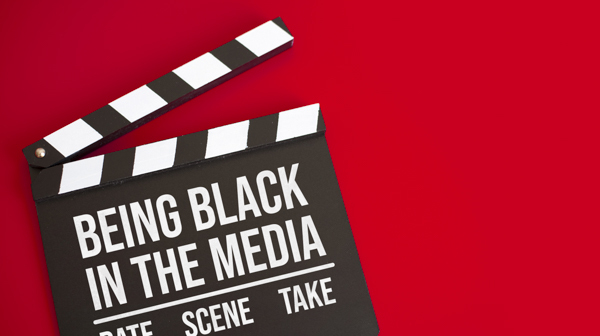- Future Students
- Current Students
- Faculty
- Staff
- Alumni
- Others
UofGH alumna launches online magazine showcasing BIPOC voices
University of Guelph-Humber Media Studies alumna Ann Villegas is the Founder and Editor-in-Chief of Isa Magazine, an independent online publication dedicated to amplifying the marginalized voices of Black, Indigenous, People of Colour (BIPOC) youth and young women.
A full-time entrepreneur and writer, Villegas caught up with us about creating Isa Magazine and cultivating a safe and open environment for young writers and artists to express themselves.
What inspired you to launch Isa Magazine?
Isa Magazine started off as a passion project and came from a place of my own personal frustration. As a creative in the media industry, especially as a freelance writer, I rely on many publications to publish and showcase my work. However on June 5, 2020 at 3 a.m. (yes, I remember this revolutionary moment), I decided for myself that enough was enough. I was going to do things my own way. To clarify, I was going through a lot of doubt for weeks at this point as I was waiting for a certain unnamed publication to publish one of my articles. All was well from the get-go. “It’ll be up next week” they said, OK great. Then “next week” came along, and nothing. I followed up, and nothing again.
As I said, enough was enough – it’s time for me to create my own opportunities. Why wait for someone else, right? Especially if it’s an idea that you can successfully manage yourself. That’s what sparked it all – a personal epiphany. But what really drove Isa Magazine to fruition was my desire to solve a bigger problem: to fill the gap where diversity and representation is lacking in the media. We saw the sudden surge of diversity in the marketing aspect and in the mainstream campaigns at the height of the Black Lives Matter movement last year, but the real question still stands: do BIPOC individuals actually work behind the scenes? Are they a part of the working team? Do they hold a role in the senior and leadership levels? Do their ideas matter? These are the questions I care about and want answers to. It doesn’t matter to me if I see all this demand for content by BIPOC creators which is obviously incredible, but it needs to dig deeper than that. I want to see equity, inclusion and diversity reflected within the workplace in these small and big companies.
My solution to that was to start my own radical space, which is Isa Magazine, and to focus on amplifying the marginalized voices of BIPOC folks through shared art and stories. I’m also looking to expand my editorial team in the next couple of weeks and I can’t wait to open these opportunities to talented folks! Before anything, I’m a writer and a learner, and I’ve always found this creative outlet of mine to be so healing. I know I’m not alone on that fact, so why not put the two together: Make art while challenging an oppressive system and servicing myself in the social impact space.
What kind of stories do you hope Isa Magazine can tell?
Literally anything! It’s important to note that big corporations profit off BIPOC’s trauma and their stories, and that’s the last thing I want for my own publication. As important as it is to make peace with our trauma and share it to others who may need to hear it, this is not our only identity. BIPOC shouldn’t be obligated to share painful moments of their lives if they’re not comfortable. We are also regular people who experience the mundane and happy moments, and want to simply share our art. As a Filipino-owned platform, I want to move beyond trauma and share beautiful stories and all creative work!
Although we prioritize the marginalized stories of BIPOC youth, women, genderqueer and non-binary folks, we are inclusive to the 2SLGBTQIA+ community. We accept the following for submissions: articles, interviews, personal essays, poetry, or short fiction stories; digital art, illustrations, or paintings; photo journals and short films or videos. You don’t need experience to submit to our magazine either. We love giving individuals the opportunity for their first published work. Topics of interest include activism, books, culture, film, mental health, music, and anything else that comes to mind. We are very open-minded and will accept almost anything!
Isa Magazine aims to create a safe and inclusive space for all young individuals to fully and freely express their creativity. Isa Magazine will always be an open community for all creative minds to thrive.
We’re curious about your time at UofGH. How did your professional goals evolve while you were a student here?
Sure! My time at UofGH was a spectacular one, and I have to thank the small community of professors, peers and now long-time friends I met during my four years. I’m also very grateful for my professional experiences at the two internships as a PR role during my time in school and the social media role I had running our capstone project Emerge in 2019. I learned so much about the industry with these first-hand experiences. But as a young student specializing in PR, I simply didn’t know (or wasn’t sure) what industry I wanted to get into. There were so many possibilities, either in community relations, media relations, public affairs, crisis communications and more!
I basically decided to play it by ear and pursue whoever was hiring post-graduation in the PR world. However, after a year of graduating school and working full-time in house, I realized that working for the sake of paying bills wasn’t worth my deteriorating mental health. I had that choice to make: quit my stable job to pursue my craft (and be happier), or stay at my stable job and sacrifice my dream (and my mental health). This was the mentality I had to overcome, and it’s safe to say that I have – all thanks to the mental support of my friends and family.
On a personal note though, I never saw myself as an entrepreneur in any way and doubted that I can even do it successfully. I instinctively remember this one moment during my last year at my “Transition to Work” class where my team and I had just finished presenting a project about entrepreneurship, and one of our classmates asked us, “Do you ever see yourself becoming an entrepreneur in the future?” I answered with what I honestly felt at that time and it was a “no, I don’t think I can ever pursue entrepreneurship.” I’ve always been a person who played it safe. Coming from a Filipino family, I was taught that to survive, I needed to be independent. From juggling multiple part-time jobs on top of school, to working a full-time job in my career, I always made sure that the jobs I had gave me the security I thought I needed. Basically, I had no choice but to work for someone else in order for me to keep the paycheques consistent.
For the longest time before going freelance, I thought I was going to give my soul to a dream company and move my way up. That’s obviously not that case now, but I wouldn’t want it any other way. This could change in the future, who knows, I’m only 23, but I’m very happy with my career path right now. I love the freedom freelance work has given me. I can work in my own terms/in my own time and be my own boss. But also in a community aspect, I love being able to do what I love and connect with so many like-minded creatives on the way. I have met such incredible people (virtually) from different parts of the world thus far, and I would’ve never been able to do that if I didn’t have my magazine. All in all, I’m super grateful and lucky that I get to do what I love every day! I will always thank UofGH for my education and for preparing me into the next chapters of my career.
Learn More About







